See the Impact Design Immersion Fellowship awardees for 2023.
Alex Lacey and Haley King
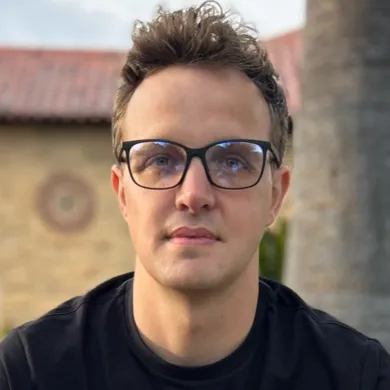
Alex Lacey
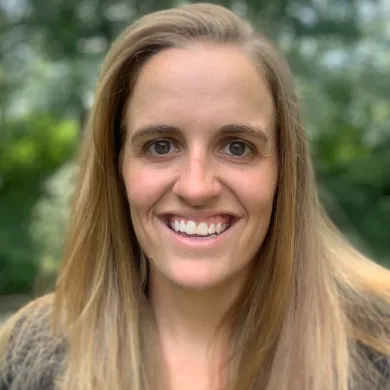
Haley King
Alex is an MBA candidate with a bachelor’s degree in biomedical science. Before business school, he was a product manager at Meta and Microsoft, leading teams in diverse areas around the companies. But now, he’s pivoting to focus on the health care space, largely driven by his own experience with health insurance.
Haley is an MBA candidate with prior degrees in mechanical and biomedical engineering. She started her career as an R&D engineer at Medtronic, where she designed cardiovascular implants for the aorta. Moving into a product manager role, she identified and addressed critical needs in the aortic space through strategic portfolio planning. Haley also evaluated health technology startups, leading cross-functional due diligence teams to assess business opportunities. She is passionate about delivering impactful solutions to address health care gaps.
IDIF Focus: Navigating insurance
Medical debt is the number one reason people file for bankruptcy in the U.S. Haley and Alex are dedicated to helping individuals navigate the intricate world of insurance claims for medically necessary procedures by offering services to write appeals. Their mission is to transform the landscape of medical coverage and ensure patients get the care they need without worrying about the financial impacts.
Andre Hamra
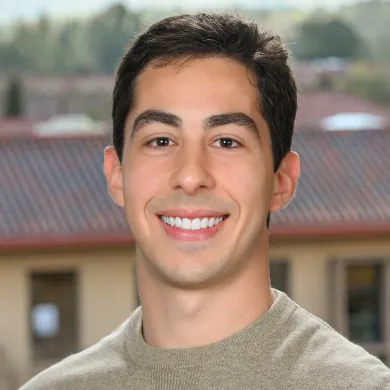
Andre is passionate about helping people pursue their ideal careers. He started pursuing social impact activities in his hometown – Catanduva, Brazil – at 13 years old. Since then, Andre has co-founded social projects in education, sports, finance, and mentoring. What has always been a hobby is now becoming a profession, as Andre plans to pursue his IDIF venture upon graduating. Before enrolling at Stanford GSB, Andre worked for seven years at StoneCo, helping to transform the company into the biggest fintech in Brazil. Academically, Andre majored in social impact and responsibility, finance, accounting, management, and philosophy at the Wharton School of UPenn.
IDIF Focus: Addressing unemployment in Catanduva-Brazil
At least 70% of the 8 billion people are not doing what they are good at and/or passionate about in their jobs. This misallocation of human capital generates professional unhappiness in individuals, frequent layoffs, and slows the evolution of humanity as fewer Einsteins emerge. This problem is especially relevant for blue-collar workers, who are frequently trapped in a job where they cannot grow and thrive. During the summer, Andre plans to test ways to help these workers discover jobs they are good at and like and get hired.
Anisha Carter
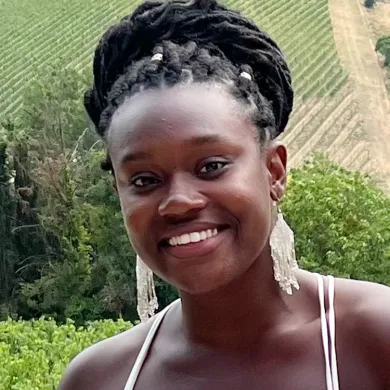
Anisha was raised in King and Queen County, Virginia, where her family and community uplifted her in her pursuit of higher education and prosperous life outcomes. She graduated from Hampton University and worked as a product manager in fintech for five years. In parallel, she created a scholarship and mentorship program for her hometown high school to encourage students to pursue their dreams. She ran the program for three years and sought to maximize her impact, so she applied to Stanford GSB to best prepare herself for a budding career in social entrepreneurship.
IDIF Focus: Mend Studio
Children in underserved communities have a higher risk of experiencing traumatic events that can dramatically alter their development. It is common for these children to experience negative health and life outcomes in adulthood due to the developmental impacts of unresolved trauma. What’s worse is that these experiences are so prevalent in these communities that people don’t recognize them as a problem that can be fixed. To alleviate these symptoms of anxiety, depression, and post-traumatic stress, Mend Studio will offer alternative and specialty therapy services to help community members experience psychological safety in a cost-effective and convenient way.
Anthony Rangel
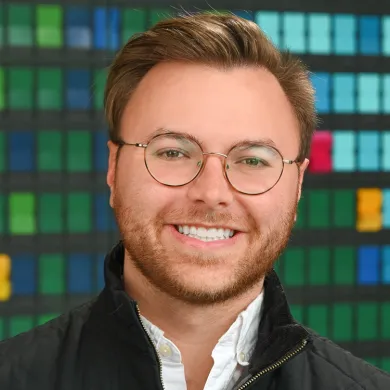
Anthony has spent five years building technology for low-income government programming (SNAP, Medicaid, etc.) and evaluating market opportunities for the preeminent American low-income fintech startup, Propel. He is an expert in how low-income consumers earn, spend, and save to get through the month. Anthony has lived experience in this problem space: Raised by a single mother, he saw firsthand how a community could come together in times of need. This personal experience allows him to see the possible, unlock those possibilities, and foster equitable access to financial services that are aptly designed for the communities that need them most.
IDIF Focus: float
Anthony plans to explore why being poor in the U.S. is so expensive and ways to make the paycheck-to-paycheck experience more dignified and less stressful. Members of vulnerable communities have been shut out by traditional banks, either by policy or geography, and consequently have been left behind by the incredible leaps Americans with more money have accessed through consumer fintech services. With the wealth gap ever-increasing in the U.S., it is increasingly urgent to address underlying systems of inequity; access to financial services has become a critical social determinant of health — both physical and mental.
Blaire Huang

Blaire spends her time on people, experience, culture, and happiness. Having completed a double major in philosophy and finance, she uses business as a vehicle for a more fulfilled life. After working at McKinsey in Washington DC and Shanghai, she built offline stores for a Shanghai-based direct-to-consumer startup selling yoga pants. Before Stanford GSB, Blaire built and grew PopSockets in China as the head of brand. Blaire sees work experiences as exciting journeys to learn, play and have fun, and aspires to make it so for everyone.
IDIF Focus: Begin Again
Is it possible to combine work, learning, and play, in harmony with human’s natural rhythm? Blaire wants to explore this topic starting with retired individuals in China. With the life expectancy approaching 100 years and labor pool tightening under shrinking population, Blaire wants to find opportunities for individuals to learn, grow, and contribute beyond retirement and unlock talent potential for the aging society.
Emily Sheng
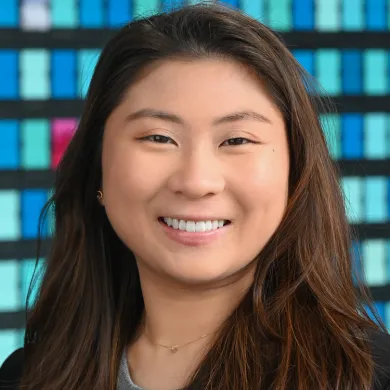
Emily is keen to advance health care access and equity. As a caretaker for her two grandmothers, she is passionate about developing better care solutions that can sustainably scale with our aging population. Emily is interested in designing tools and devices that improve our understanding of medical conditions and treatment efficacy. Previously, she led the design and development of key mechanical components within iPad and MacBook products at Apple, where she learned how to bring hardware ideas to life and mass production. She holds a bachelor’s degree in mechanical engineering from MIT.
IDIF Focus: Rethinking sustainable care
Providing adequate mental health care will become increasingly challenging as the American population ages. Insomnia affects 10-30% of the U.S. population and rises to 44% among seniors 65 years and older. Caring for seniors can be time-consuming, emotionally stressful, and financially costly for families, health care systems, and the government. To address the growing demand for care providers and the insufficient supply of caregivers, Emily aims to investigate making caretaking more efficient and leveraging new technology innovations to advance how we care for others.
Gabriela Forter and Laura Luo
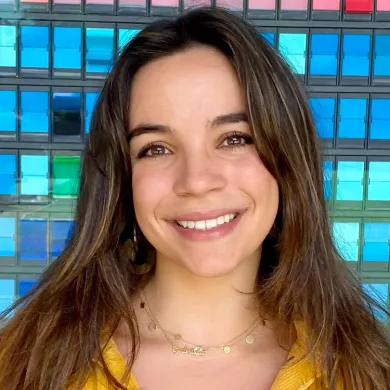
Gabriela Forter
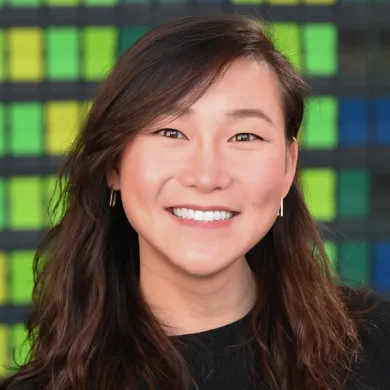
Laura Luo
Gabriela and Laura met during their first week at Stanford GSB and bonded immediately over their shared passion for solving issues in the mental health space.
Born in Sichuan, China, Laura is a first-generation Chinese Canadian. Laura’s passion for mental health stems from her personal experiences dating back to her teenage years. As a mental health advocate, she founded Asian Mental Health Collective, a nonprofit that de-stigmatizes and makes mental health more approachable and accessible to Asian communities. Before Stanford GSB, Laura worked as an investor in the health care and technology space.
Gabriela is inspired by opportunities to improve the well-being of low-income communities. She was raised in the heart of the farmworker movement in California’s Central Valley and is a dual-degree student between Stanford GSB and Harvard Kennedy School. She received a BA from UCLA and has internship experience in investment banking and venture capital. Before business school, she worked at Deloitte Consulting and later at Meta. She is the co-founder of an edtech startup that democratizes and demystifies disruptive innovation for high school students.
IDIF Focus: Mental health for low-income populations
Minority Medicaid recipients lack personalized care and engagement in receiving mental health treatment. Gabriela and Laura plan to focus on improving the quality of mental health services for BIPOC Medicaid populations in the U.S., who tend to face significant cultural, logistical, and financial barriers that result in racial and ethnic disparities in quality of treatment. They plan to understand better mental health solution gaps from the perspectives of both Medicaid minority patients and managed care organizations in California.
Kieran Carty
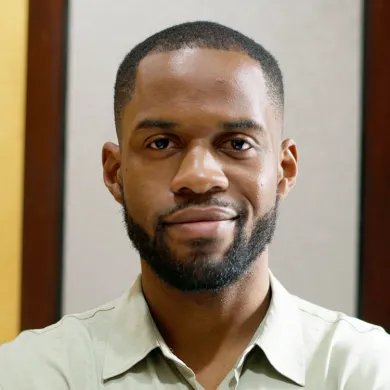
Kieran is a Fulbright scholar and the recipient of the Sir Cyril Taylor Memorial Award for Social Entrepreneurship. He grew up in London, where he became passionate about solving the issue of access to homeownership for young people and members of underrepresented groups who are being pushed out of their homes due to gentrification. Before joining Stanford GSB, Kieran worked in impact investing at the Open Society Foundations, helping high-impact ventures get started. He also worked in investment banking at Credit Suisse, where he was an M&A analyst focused on retail banking and specialty lending.
IDIF Focus: Increasing access to homeownership
For the last four decades, the cost of housing in cities such as New York and London has soared, making it incredibly difficult for first-time buyers to purchase a home without drawing on external financial support from family or pre-existing generational wealth. This situation has left many young adults who grew up in these cities, paid into their tax system, and contributed to their cultural vibrancy unable to access their fair share of wealth due to unaffordable house prices. As a result, homeownership remains a distant dream for those without generational wealth, hindering their ability to establish themselves, form meaningful relationships, and achieve financial independence.
Mateo Jaramillo and Paloma Santos Vela
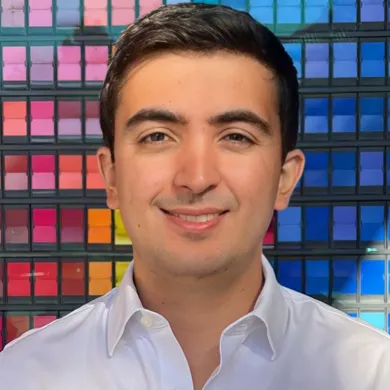
Mateo Jaramillo
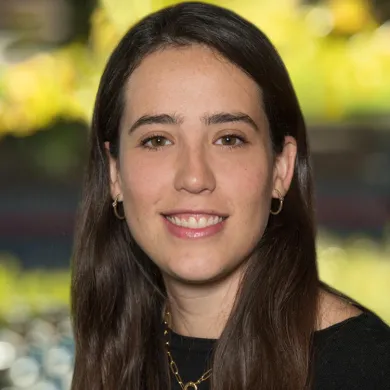
Paloma Santos Vela
Mateo was born in Bogota, Colombia, where he studied industrial engineering at Universidad de los Andes. He later joined BCG, spending five years working on various projects, mostly in the energy and financial institution sector. Through this experience, Mateo witnessed the enormous potential of Latin America and became motivated by the unique opportunities to improve the living conditions of the population. Driven by the passion to make a meaningful impact in the region, Mateo has chosen to tackle a significant challenge to improve chronic kidney disease (CKD) patients in Latin America.
Paloma is a first-year MBA student with a background in industrial engineering from Tec de Monterrey. Before pursuing her MBA, Paloma worked as a consultant for Bain & Company in Monterrey and Mexico City, advising companies on topics such as supply chain, advanced analytics, and organizational restructuring. Strongly passionate about creating a positive impact in Latin America, Paloma also worked for ProducePay, an AgTech startup that helps Mexican farmers commercialize their produce. By leveraging her experience working at the Abierto Monterrey tennis tournament, Paloma is committed to enhancing the patient experience in the health care industry by developing better medical services.
IDIF Focus: Agora Renal Services
The current treatment landscape for treating CKD in Latin America is fragmented and lacks a cohesive, patient-centric approach that prioritizes the customer experience. As a result, patients often receive suboptimal care that fails to meet their unique needs. This is a concerning reality, but Paloma and Mateo are committed to changing it. This summer, they will explore the viability and business models that will enable them to provide a better health care experience to CKD patients in Mexico. Our goal is to develop a more effective and patient-focused care delivery system that will improve outcomes and enhance the quality of life for CKD patients.
Oren Fliegelman and Pat Dowling
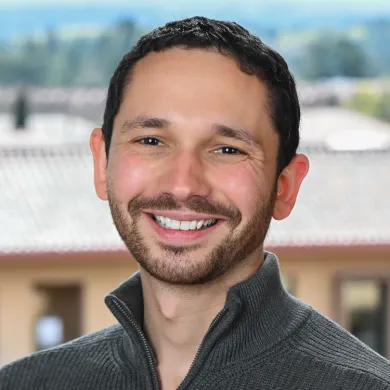
Oren Fliegelman
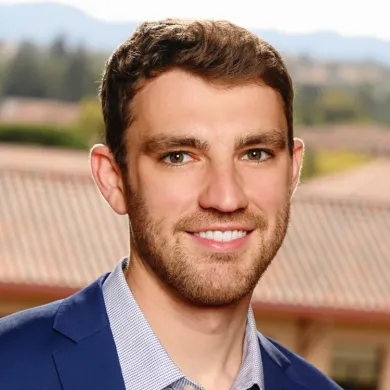
Pat Dowling
Oren combines technology and public service insights to help solve critical global problems. He has been a team lead at the Google Creative Lab and invested in climate and deep tech startups at DCVC, a $3 billion venture capital firm. He has led special projects on President Biden’s 2020 campaign and served as a speechwriter for Secretary Hillary Clinton. At Stanford GSB, Oren is the co-director of the Corporations and Society Initiative. Oren holds an AB from Princeton University and is completing his MBA and MS at Stanford GSB and the Stanford Doerr School of Sustainability.
Pat is passionate about climate technology, the built environment, and sustainable finance. At Tesla, he worked with the Energy Products team to develop new markets globally for Powerwall, the leading home battery. As a startup product leader, he led the development of computer vision-based wildfire risk analytics and a residential solar customer acquisition platform. At 38 Degrees North, Pat led investments into distributed solar and battery storage assets. Pat earned his AB in environmental science and public policy from Harvard College and is completing his MBA and MS at Stanford GSB and the Stanford Doerr School of Sustainability.
IDIF Focus: Making heat pumps affordable and accessible for all
Oren and Pat are working to decarbonize homes across America. It’s a massive generational challenge: Homes are responsible for 20% of greenhouse gas emissions in the U.S., most of which come from heating and cooling. Thankfully, the solution can be found in a technology finally coming into its own. Heat pumps provide an electrified, energy-efficient alternative to gas furnaces, ACs, and hot water heaters — but fewer than 15% of homes use them. Oren and Pat are exploring how to make heat pumps affordable, convenient, and easy to install in every zip code in the country.
Shubhi Jain and Vikram Shanker
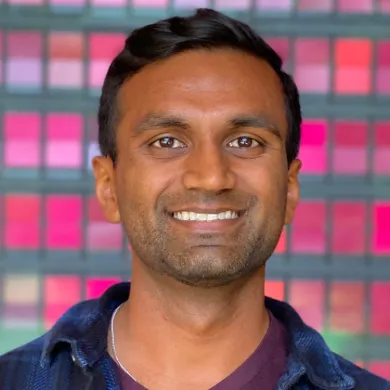
Shubhi Jain

Vikram Shanker
Shubhi is a first-generation immigrant from a historically underbanked family that has experienced the impact of financial distress. He believes financial freedom is key in paving the path for mental and physical health. With five years of experience in machine learning, AI, and product development at Momentive, Stitch Fix, and CULytics, Shubhi aims to leverage his expertise to assist individuals in achieving financial health wellness, ultimately helping them lead happier lives.
Vikram is a proud midwesterner who has witnessed the physical and emotional distress caused by financial uncertainty in his community growing up. He is focused on increasing access to financial tools for paycheck-to-paycheck Americans, drawing upon his experience as an engineer at Google and Citadel, building privacy, security, and finance products used by millions of people and institutions across the globe.
IDIF Focus: Payments Revolution
Over 25 million low-income households in the U.S. rely on costly physical financial products. We see potential in the digitization of financial technologies to offer cheaper, more accessible solutions. While initially focusing on remittance, where fees can reach 7%, we later discovered more basic but limited-access and expensive services, like cash flow management for low-income individuals. This summer, Shubhi and Vikram will dedicate their time to understanding the low-income population in the U.S. and the financial challenges they face. They are excited to prototype and validate their hypotheses on creating financial solutions that enable people to live fulfilling and healthy lives.
Sophia Fang
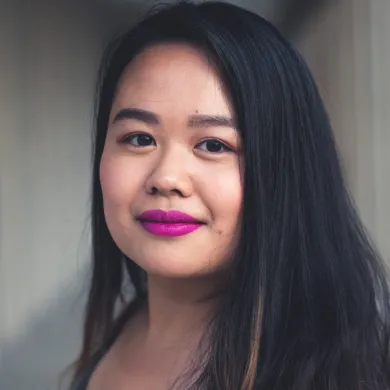
Sophia is a startup marketer by trade, a creative artist by nature, and a social impact creator by purpose. Before Stanford GSB, she was the head of marketing at Honeycomb Credit, a small business crowdfunding startup, which she grew from pre-revenue to $1 million ARR. She also moonlights as a professional mural artist painting immigrant stories. She has taught marketing to thousands of women in tech, founders, and college students, including at Carnegie Mellon University and BNY Mellon. In high school, she founded a fashion blog with more than 50,000 followers, and while studying at Pomona College, she was the founding marketing director of Health Bridges, an immigrant health care nonprofit.
IDIF Focus: Peachy Day
As a chronic migraine sufferer (15 to 20+ days per month) who grew up watching her mom suffer the same, Sophia doesn’t go a day without thinking about migraines. Causing debilitating pain and life impediments, migraines are the second most common disability in the world, afflicting more than 1 billion people and 1 in 5 women in the U.S. Sophia is building Peachy Day, a social venture that empowers migraine sufferers with a trusted digital care companion that provides daily tracking, personalized health insights, peer support, and/or other potential solutions. This summer, she plans to explore effective strategies for migraine management, interview migraine experts nationwide, and run a test trial with potential users.
Touré Owen
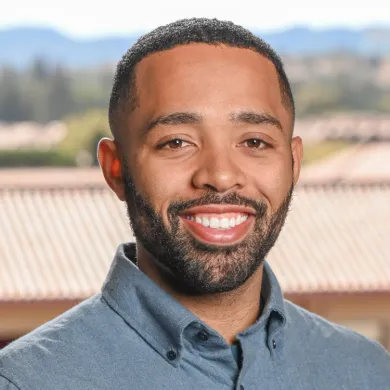
Touré is passionate about creating pathways to economic empowerment in communities of color and spent the early part of his career building programs and organizations in service of this goal. Most notably, he co-founded Colorwave, a not-for-profit seeking to bridge the divide between communities of color and the innovation economy via hiring partnerships with venture funds and their portfolio of startups. While at Stanford GSB, Touré began to explore the legacy and impact of the Black barbershop as a community gathering space and economic engine. Inspired by its history and potential but disappointed by its current state, Touré intends to launch his own Black barbershop brand that brings a new level of investment to this historic institution.
IDIF Focus: Exploring high default rates of barber colleges
Touré will explore the root causes of high default rates in barber colleges. Becoming a barber requires more time and money than a police officer. A standard barber’s license requires over $10,000 and 1,000 hours. These extreme license requirements have led to high default rates, and 8 of the 10 highest default rate colleges in the U.S. today are barber or beauty colleges. This extreme level of default represents a significant barrier to entry to a historically accessible path to entrepreneurship. Touré will explore how and why this broken system exists, how barbers are impacted, and what can be done to fix it.
Trey Dodson

Before joining Stanford GSB, Trey studied at Vanderbilt, where he pursued a double major in organizational behavior and corporate strategy, supplemented by a minor in leadership and organizational effectiveness. Trey developed a profound passion for the equity and belonging components of the DEIB equation, which he further explored during his six-year tenure within Deloitte’s Human Capital Consulting Practice. Trey’s drive to pursue this line of work is fueled by conversations with friends and colleagues and his experiences with overcoming systemic barriers. He is determined to champion the types of change that will enable his younger siblings and future generations to experience a more equitable workplace and world at large.
IDIF Focus: Pay Me in Equity
Of the $69.1 trillion global financial assets under management across mutual funds, hedge funds, real estate, and private equity, fewer than 1.3% are managed by women and people of color. This statistic underscores a significant lack of diversity within the finance industry, particularly in positions of power and decision-making. Trey’s project will examine specific equity-related interventions that senior executives within the finance sector can employ to affect substantive change within their firms and across their portfolio companies. The ultimate goal of this project is to lay the groundwork for more equitable outcomes that benefit employees, customers, suppliers, and society as a whole.
Zack Doherty
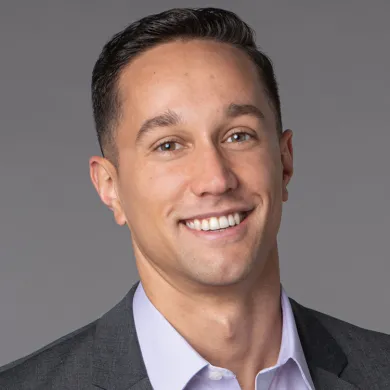
Zack has spent most of his career as an officer in the United States Marine Corps. Serving his first tour in Okinawa, Japan, he managed public affairs campaigns for multinational military activities throughout Southeast Asia. During his second tour aboard Camp Pendleton, California, he worked to innovate policies and programs around civil-military operations. He continues to serve in the Reserves. At Stanford GSB, Zack is building a civic-technology startup for improving how voters get information to enhance political discourse online. He also serves as a View From The Top Leader.
IDIF Focus: TrueVote
Traditional social media is widely known to contribute to trends in democratic backsliding. Yet, there is no widely-adopted, nonpartisan political platform for people to learn about and engage with politics. Specifically, American voters struggle to find comprehensive, simplified, and trustworthy information about politics on existing platforms. Such ineffectiveness threatens not only the stability of American society but also the entire framework of democracy. Zack will focus on creating a solution that facilitates modern voters’ online political behaviors in a way that is consistent with standards for “digital democracy” in the 21st century.